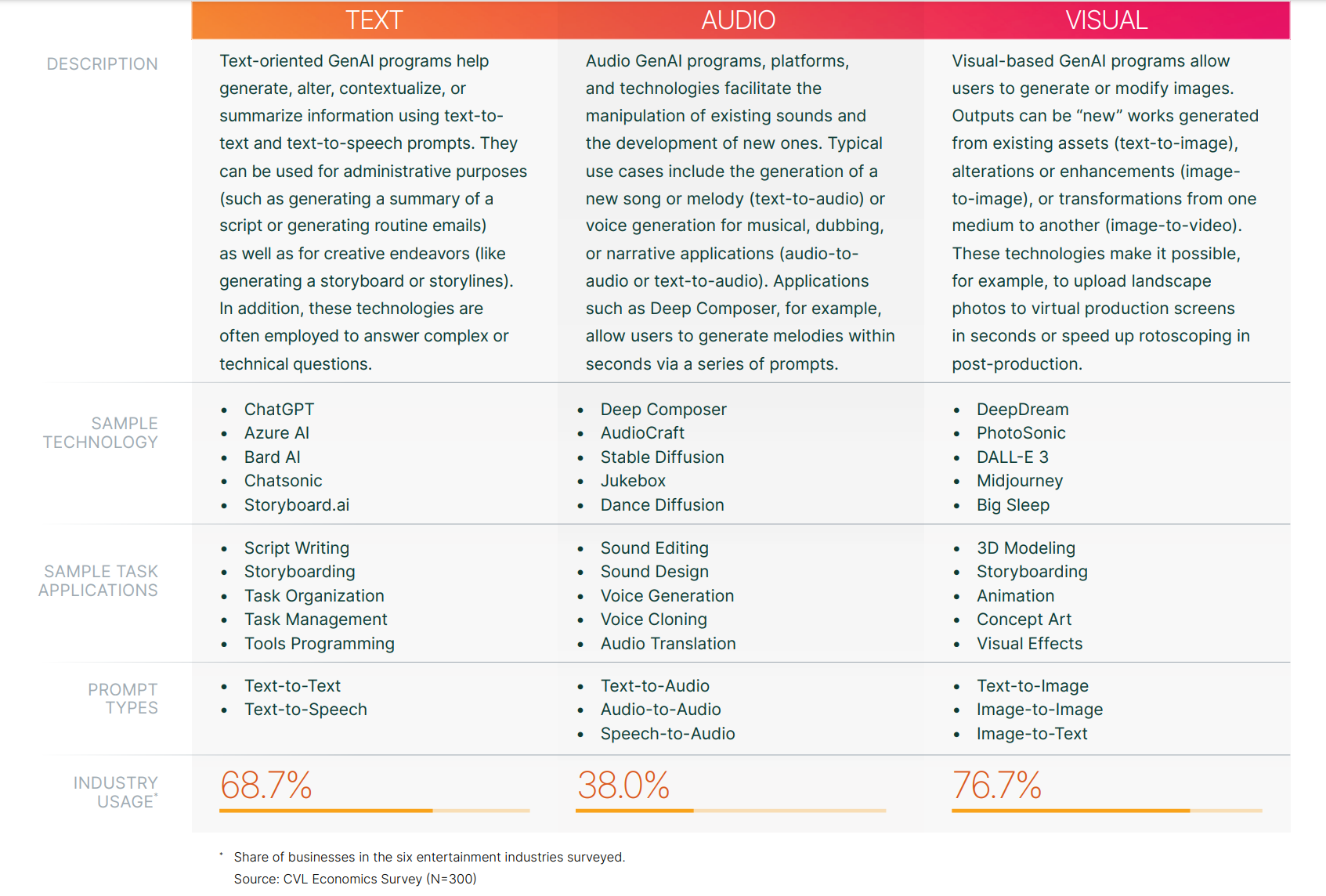GenAI could disrupt over 200,000 entertainment industry jobs by 2026, says study

From November 17 to December 22, 2023, CVL Economics surveyed 300 executives from six U.S. entertainment industries about the impact of Generative Artificial Intelligence.
The study found that approximately 203,800 entertainment industry jobs could be disrupted by GenAI by 2026. Approximately 72 percent of the companies surveyed are considered early adopters of GenAI. 25 percent are already using it, and 47 percent plan to implement it soon.
About six in ten GenAI users said that GenAI has improved the efficiency of routine tasks and the quality of routine or repetitive tasks in their organization. Half said that GenAI had created new roles and responsibilities, but the study doesn't go into detail about which roles and how many.
Although GenAI is generally expected to increase productivity, it could also lead to job changes, replacements or losses, particularly in California, New York, Georgia and Washington, according to the study.
The survey also found that workers have ethical concerns about GenAI. Some 57 percent of respondents are concerned about issues such as "stochastic parrots," unclear results, and the potential for fake information and deepfakes.

That said, 90 percent of executives believe that GenAI will become increasingly important in the entertainment industry. 47 percent believe that GenAI will soon generate 3D objects and realistic sound effects for movies and video games.
The technology could create new employment opportunities, but it is unclear whether this will offset potential job losses. Companies should ensure that new technologies enhance human creativity, not replace it, the study says.
Biggest Job Impact Will Be in Film, Television, and Animation
The report also examines the impact of GenAI on various sectors of the entertainment industry. In the motion picture, television and animation industry, GenAI is expected to impact approximately 118,500 jobs (21.4 percent) by 2026, primarily in California.
The music and recording industry (8.4 percent), which is slower to adopt GenAI, estimates that nearly 1,800 jobs will be affected, mostly in California and Tennessee.
The gaming industry, the fastest adopter of GenAI, estimates that more than 52,400 jobs (13.4 percent) will be affected, primarily in California and Washington.
AI News Without the Hype – Curated by Humans
As a THE DECODER subscriber, you get ad-free reading, our weekly AI newsletter, the exclusive "AI Radar" Frontier Report 6× per year, access to comments, and our complete archive.
Subscribe nowAI news without the hype
Curated by humans.
- Over 20 percent launch discount.
- Read without distractions – no Google ads.
- Access to comments and community discussions.
- Weekly AI newsletter.
- 6 times a year: “AI Radar” – deep dives on key AI topics.
- Up to 25 % off on KI Pro online events.
- Access to our full ten-year archive.
- Get the latest AI news from The Decoder.